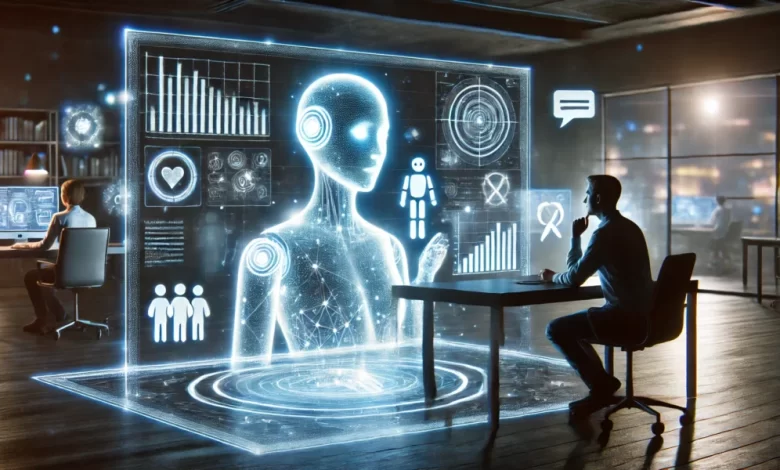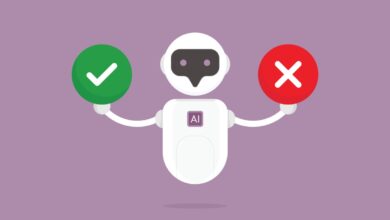How AI is Changing the Way We Tackle Conspiracy Theories

Conspiracy theories have always been part of human history, attracting people with stories of secret plots and hidden truths. But in today’s connected world, these theories are not just harmless gossip; they have become a global problem. With social media, false ideas like “9/11 was an inside job” or “vaccines have microchips” can spread around the world in minutes. These stories can create distrust, divide communities and in some cases incite violence.
Psychologists have spent years trying to understand why people believe these theories and how to question them. Despite their efforts, changing these beliefs has proven difficult. Psychological theories suggest that these ideas are deeply tied to emotions and people’s personal identities, rather than logic or facts.
However, researchers have recently discovered that AI could offer a way out. Unlike traditional methods, AI not only presents facts, but also engages in conversations. By listening and responding in a way that feels personal and empathetic, AI has the potential to challenge these deeply held beliefs. In this article we will explore this new ability of AI and how it could change the way we deal with conspiracy theories.
The AI experiment: a new approach
Recently, researchers conducted an experiment to investigate whether generative AI could tackle the challenge of conspiracy theories. Their studypublished in Scienceused OpenAI’s GPT-4 Turbo, a large language model (LLM), to engage conspiracy believers in personalized, evidence-based conversations. Participants were asked to share a conspiracy theory they believed in and supporting evidence. The AI then engages them in a three-round structured dialogue, presenting counterarguments tailored to the specific theory the person believes in.
The results were impressive. After a conversation with the AI, belief in the conspiracy theory decreased by an average of 20%. This wasn’t just a quick change; the change persisted for at least two months. Even more surprising, people were less likely to believe other conspiracy theories. They also felt more motivated to challenge others who believed in similar ideas.
Why AI works where humans struggle
There are several reasons why AI stands out in tackling conspiracy theories by doing things that humans often find difficult to achieve. One of AI’s key strengths is personalization. Instead of using generic fact-checks or broad statements, AI uses answers that match each person’s specific beliefs and the evidence they provide. This makes the conversations more relevant and convincing.
Another reason why AI works so well is because it can remain calm and neutral. Unlike humans, AI can facilitate detailed discussions without showing frustration or judgment. This ability allows it to maintain an empathetic and non-judgmental tone, making people less defensive and more open to reconsidering their views.
The accuracy of AI is another critical factor. It has been tested on hundreds of claims and the answers were accurate 99.2% of the time. This reliability creates trust and makes people more likely to reconsider their beliefs.
What’s even more impressive is how AI’s impact goes beyond just one conspiracy theory. It helps people rethink their approach to similar ideas, making them less likely to believe other conspiracy theories. Some even feel motivated to challenge disinformation when they see it. By targeting both specific beliefs and the broader mindset, AI shows great potential in how we can effectively combat conspiracy theories.
Implications for society
The world is struggling with misinformation, and these findings bring a glimmer of hope. We’ve long been told that conspiracy theories can only be tackled with facts, but this study shows that even deeply held beliefs can be changed with the right approach. It is possible to help people get out of the cycle of misinformation by leading them to a more informed view of reality.
AI’s ability to tackle conspiracy theories could have an impact beyond just individual conversations. It could help reduce social conflict caused by conspiracy theories — such as vaccine fears or false claims about election fraud — if used correctly. It could also play a role in preventing misinformation from spreading in the first place. AI could tackle false ideas before they gain traction by being part of education, public health campaigns and even social media platforms.
Ethical considerations and risks
AI is powerful, but with that power comes responsibility. The same tools that can help debunk conspiracy theories can also be used to cause harm. Imagine AI being used to spread false information or manipulate people’s opinions. Therefore, it is crucial to ensure that AI is used in an ethical manner. There must be clear rules, oversight and transparency about how AI is applied, especially when it comes to sensitive topics.
The success of AI also depends on the quality of the training data and algorithms. If the data is distorted, it can lead to inaccurate or unfair responses, damaging the AI’s credibility and effectiveness. Regular updates, ongoing research and independent audits will be critical to identifying and correcting these issues and ensuring the technology is used responsibly and ethically.
A broader shift in the role of AI
This study highlights an emerging shift in how AI can benefit society. While generative AI is often criticized for amplifying misinformation, this research shows that it can also be a powerful tool in countering it. By demonstrating AI’s ability to tackle complex issues such as conspiracy theories, the study changes the standard narrative, presenting AI as a solution to some of the challenges it is often blamed for.
It reminds us that technology is neutral, neither good nor bad. Its impact depends entirely on how we decide to use it. By focusing on ethical and responsible applications, we can unleash the potential of AI to drive positive change and tackle some of society’s most pressing problems.
The bottom line
AI offers a promising new way to combat conspiracy theories by engaging people in personalized, empathetic conversations that encourage critical thinking and reduce belief in misinformation. Unlike traditional methods, AI’s neutral tone, tailored responses and high accuracy effectively challenge deeply held beliefs and promote broader resistance to conspiracy thinking. However, its success depends on ethical use, transparency and continued monitoring. This study highlights AI’s potential to counter disinformation and promote societal harmony when applied responsibly.




